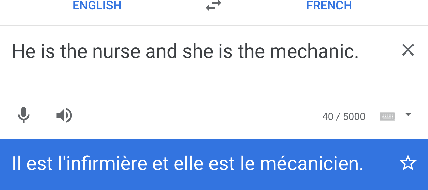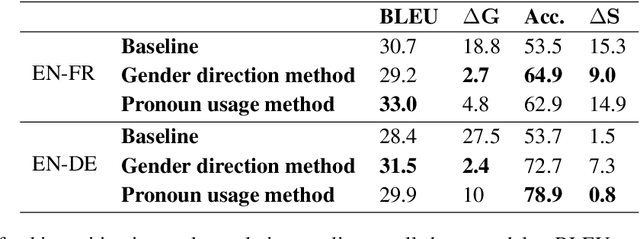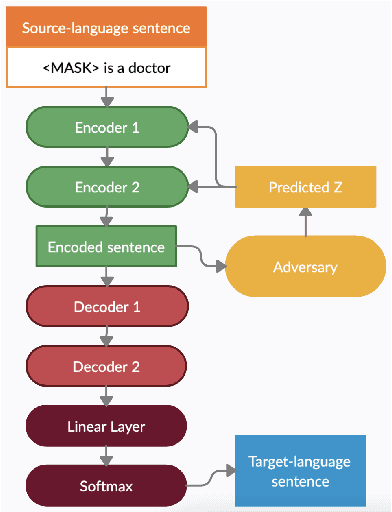Mitigating Gender Bias in Machine Translation through Adversarial Learning
Paper and Code
Mar 20, 2022



Machine translation and other NLP systems often contain significant biases regarding sensitive attributes, such as gender or race, that worsen system performance and perpetuate harmful stereotypes. Recent preliminary research suggests that adversarial learning can be used as part of a model-agnostic bias mitigation method that requires no data modifications. However, adapting this strategy for machine translation and other modern NLP domains requires (1) restructuring training objectives in the context of fine-tuning pretrained large language models and (2) developing measures for gender or other protected variables for tasks in which these attributes must be deduced from the data itself. We present an adversarial learning framework that addresses these challenges to mitigate gender bias in seq2seq machine translation. Our framework improves the disparity in translation quality for sentences with male vs. female entities by 86% for English-German translation and 91% for English-French translation, with minimal effect on translation quality. The results suggest that adversarial learning is a promising technique for mitigating gender bias in machine translation.
 Add to Chrome
Add to Chrome Add to Firefox
Add to Firefox Add to Edge
Add to Edge